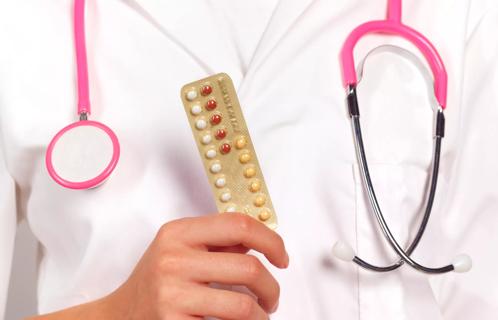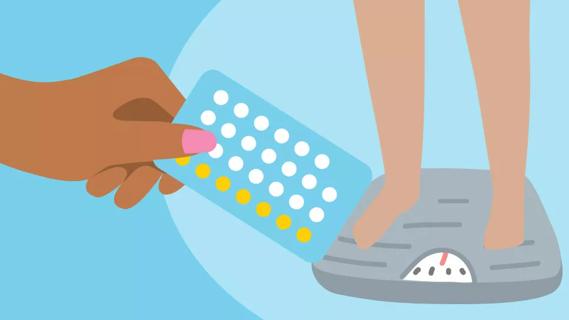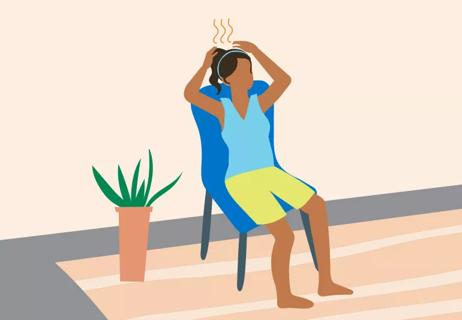The sex hormone helps with the heart, brain, bones and mood

You’ve heard about estrogen and how its low levels can wreak havoc on your body, especially during perimenopause and postmenopause. Think hot flashes, weight gain and vaginal dryness.
Cleveland Clinic is a non-profit academic medical center. Advertising on our site helps support our mission. We do not endorse non-Cleveland Clinic products or services. Policy
But the hormone isn’t all bad. In fact, it has some positive side effects, like protecting your heart and brain, improving muscle mass, boosting your mood and improving your sex life.
Ob/Gyn Swapna Kollikonda, MD, explains how estrogen works and why it’s important.
Estrogen is a hormone responsible for many functions in your body. In those assigned females at birth, it helps develop and maintain your reproductive system and characteristics like breasts and pubic hair.
“Estrogen is a hormone that’s secreted by the ovaries,” says Dr. Kollikonda. “During the reproductive age, it regulates the menstrual cycle.”
Your levels of estrogen rise as you hit puberty. Then, each month as your estrogen levels surge, your uterine lining preps for fertilization. When those levels drop, menstruation begins.
As you age, your estrogen levels begin decreasing, leading to menopause, which marks the end of the reproductive years.
“As we get older, ovarian function declines and the number of egg sacs decrease in the ovaries,” says Dr. Kollikonda. “That decreases the levels of estrogen. It’s a normal aging process.”
Known mostly for how it helps with the reproductive system, research now shows that estrogen helps almost every organ system.
Estrogen helps your heart by keeping cardiovascular tissue healthy. It also helps with keeping your blood pressure stable.
And when your estrogen levels are high, it helps keep blood triglycerides (a type of fat) low, increases HDL cholesterol (the good kind) and lowers LDL cholesterol (the bad kind).
The link between estrogen and your heart is still being studied. For example, studies have shown that heart disease increases in individuals who get bilateral oophorectomy (the removal of both ovaries) before menopause.
Estrogen protects your brain by helping maintain proper blood flow. It also protects against inflammation and disease. It even assists in helping with memory and fine motor skills.
If you’ve experienced brain fog — find it hard to focus or lose your train of thought — low levels of estrogen may be to blame.
But research shows that brain fog lifts after menopause, though it isn’t entirely clear if that has to do with estrogen levels.
One study shows that the longer an individual has been exposed to estrogen the better their brain health is as they age.
The hormone also plays a vital role in the growth of your bones and improving muscle mass.
It helps protect against osteoporosis, a condition in which bones become weak and brittle from loss of tissue.
“In menopause, bone mass decreases due to the decrease of estrogen and makes them weak and fragile with the increased tendency to break easily,” says Dr. Kollikonda.
Those mood swings you get right before your menstrual cycle might be caused by the shifting levels of estrogen.
The hormone is known to help keep serotonin levels regular (those “feel-good hormones”) and help the effectiveness of endorphins. It can even aid in protecting nerves and encouraging nerve growth.
But researchers are still trying to figure out if low levels or high levels of estrogen can impact your mood.
Estrogen is vital when it comes to your sex life. The hormone keeps your vagina lubricated so sex is enjoyable.
When estrogen levels are low, your vagina walls get thin and produce less lubricant.
“During menopause, the elasticity of your vagina is going to decrease,” says Dr. Kollikonda. “Sex can be very painful.” Thankfully, the use of vaginal creams or lotions can help.
Your doctor can help guide you to the right answer. Blood tests can confirm if your estrogen levels are low, but you aren’t considered in menopause until you haven’t had a menstrual cycle for one whole year.
During this time, you may experience:
Your doctor may prescribe hormone therapy, which helps supplement estrogen. Progesterone, another hormone that aids in the reproductive system, may also be added if you haven’t had a hysterectomy.
Estrogen can be delivered through oral medication, patches, gel, cream or spray. There are different levels of estrogen you can take, too. Your doctor will work with you to get the dosage right.
While there had been concerns about hormone replacement therapy causing an increased risk of breast cancer, diabetes and cardiovascular disease, research now shows that estrogen can be beneficial if hormone replacement therapy is started sooner rather than later.
“If you’re experiencing hot flashes and night sweats, there is a theory called timing theory that says you need to start hormone replacement therapy as soon as you’re in menopause,” says Dr. Kollikonda. “At that point, the benefits outweigh the risk.”
But if you wait 10 years after menopause to start hormone replacement therapy, the risks of breast cancer, deep vein thrombosis, stroke and cardiovascular disease increase, outweighing the benefits.
While it’s important to know the risks, Dr. Kollikonda says talking to your doctor can help determine your best path forward.
“If you’re having symptoms and your quality of life is decreased, it’s better to take estrogen,” she says. “There’s no need to suffer.”
Learn more about our editorial process.

Estrogen and progesterone changes throughout the month — and throughout your life — can make you more prone to dental health concerns

Hormone changes can definitely leave you tossing and turning at night, but help is available

Your natural estrogen levels support a healthy heart by improving your cholesterol, increasing blood flow and reducing free radicals

The scenarios vary based on how many pills you’ve missed and whether you take a combination pill or progestin-only pill

Despite popular opinion, scientific research shows that most birth control methods don’t contribute to weight gain

Heat starts in your chest and moves up to your neck and face … and then, the sweating begins

While they may not burn calories or cause fevers, these heat waves can make you miserable — but you don’t have to just grin and bear it!

Taking precautions like eating healthy, stopping smoking and getting regular screenings can help protect against breast cancer

Your metabolism may torch 1,300 to 2,000 calories daily with no activity

A gentle touch in all the right places may help drain your sinuses